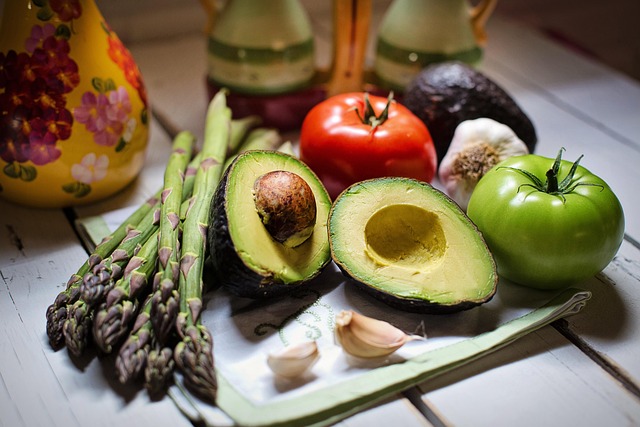Smart kitchen devices powered by IoT, AI, and sensor technology are transforming culinary spaces into eco-friendly, energy-efficient hubs. These gadgets, including voice-controlled smart ovens and connected refrigerators, optimize resource use through features like expiration date tracking, real-time inventory management, and full bin detection. By learning user habits and suggesting recipes, AI assistants enhance convenience and minimize food waste. Manufacturers are incorporating sustainable materials like reclaimed wood and bamboo into design, while smart appliances manage energy efficiently. This integration of technology and sustainability is driving a global shift towards greener kitchen practices.
The modern kitchen is evolving, driven by a desire for both convenience and sustainability. Advanced technology offers an array of smart kitchen devices that promise to revolutionize cooking and make our homes greener. From energy-efficient smart appliances to IoT sensors that optimize waste reduction, voice control powered by AI assistants, and sustainable design innovations—these developments are transforming the way we prepare meals. Embrace the future with these cutting-edge smart kitchen technologies for a more eco-friendly lifestyle.
- Smart Appliances: The Future of Energy-Efficient Cooking
- IoT and Sensor Technology for Waste Reduction
- Voice Control and AI Assistants in the Kitchen
- Sustainable Materials and Design Innovations
Smart Appliances: The Future of Energy-Efficient Cooking
Smart kitchen devices are transforming the way we approach energy-efficient cooking, paving the way for a greener future in our culinary spaces. These innovative appliances utilize advanced technology to optimize energy consumption and streamline cooking processes, offering both convenience and environmental benefits. From smart ovens that automatically adjust settings based on recipe requirements, to connected refrigerators with real-time inventory management systems, these devices are a game-changer in sustainable living.
The integration of IoT (Internet of Things) capabilities allows these smart kitchen gadgets to communicate with each other and learn user preferences, ensuring efficient resource utilization. For instance, a smart stove can detect the heat level needed for a dish and adjust accordingly, preventing energy wastage. Moreover, these appliances often come equipped with voice control and mobile app connectivity, enabling users to monitor and control their cooking from anywhere, further reducing energy consumption by eliminating idle time.
IoT and Sensor Technology for Waste Reduction
In today’s digital era, smart kitchen devices are transforming the way we approach food waste reduction. Internet of Things (IoT) and sensor technology play a pivotal role in creating a greener kitchen ecosystem. Smart refrigerators, for instance, use sensors to monitor food stocks, tracking expiration dates and alerting users when items need to be used or replaced. This proactive approach ensures food is consumed before it spoils, minimizing waste. Additionally, IoT-enabled trash cans equipped with sensors can detect when they are full, automatically signaling garbage collection services, optimizing routes and reducing carbon emissions associated with frequent collections.
These smart kitchen devices not only help in waste reduction but also foster a more sustainable lifestyle. By providing real-time data on food consumption patterns, these technologies enable better meal planning, minimizing over-purchasing. Moreover, connected appliances can communicate with each other, suggesting recipes based on available ingredients, further promoting efficient use of food and reducing waste.
Voice Control and AI Assistants in the Kitchen
Voice control and AI assistants are transforming the way we interact with our kitchens, making them smarter and more efficient. These advanced technologies allow for hands-free operation of various appliances and devices, from adjusting oven temperatures to ordering grocery supplies. Smart kitchen devices powered by AI can learn your habits and preferences, suggesting recipes or optimizing cooking times to reduce energy consumption.
By integrating voice control into your kitchen routine, you not only minimize contact with surfaces during preparation but also enable a more seamless, enjoyable cooking experience. AI assistants can provide real-time assistance, offering step-by-step instructions for complex dishes or answering queries about ingredient substitutions and nutritional information. This level of interactivity fosters a deeper connection between technology and culinary arts, ultimately contributing to a greener kitchen through enhanced convenience and resource management.
Sustainable Materials and Design Innovations
In the pursuit of a greener kitchen, sustainable materials and design innovations are playing a pivotal role. Manufacturers are increasingly incorporating eco-friendly elements into smart kitchen devices, shifting the landscape of modern kitchens towards environmental stewardship. For instance, appliances are being designed with recycled or biodegradable materials, reducing their carbon footprint at every stage of their lifecycle. Countertops made from reclaimed wood or bamboo, and cabinets crafted from sustainable lumber, offer both aesthetic appeal and a commitment to preserving natural resources.
These advancements extend beyond materials to include design features that optimize energy efficiency. Smart kitchen devices equipped with sensors and advanced technology enable precise temperature control and energy management. For example, smart refrigerators can monitor food inventory and adjust cooling settings accordingly, minimizing energy waste. This integration of sustainability into both material composition and technological sophistication is driving a revolutionary change in how we think about and design our kitchens, aligning them more closely with our global efforts to combat climate change.
The future of a greener kitchen lies in the integration of advanced technology, from smart appliances that optimize energy efficiency to IoT sensors reducing waste. Voice control and AI assistants further enhance convenience while fostering sustainable practices. Embracing these innovations not only contributes to environmental conservation but also transforms the kitchen into a high-tech hub, where cutting-edge design meets eco-conscious living. By adopting smart kitchen devices, we can create a more sustainable and functional space for years to come.
